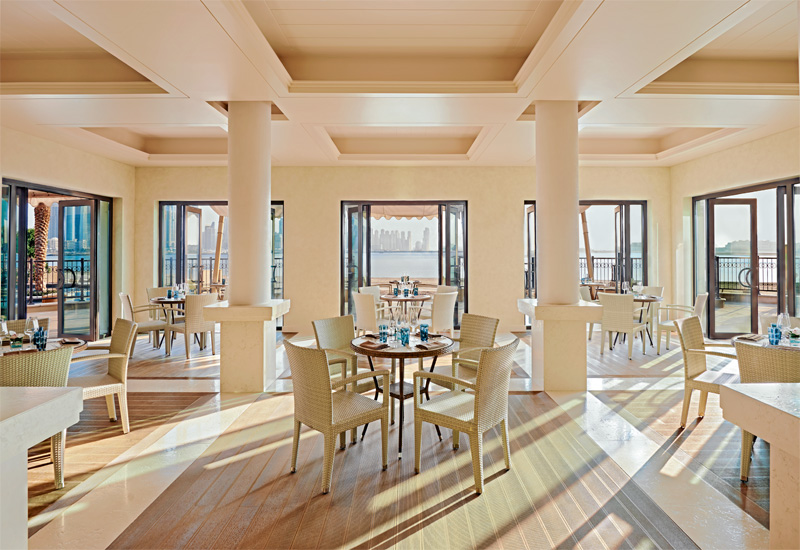 Hotelier met Jean Michel Offe at new hotel Fairmont the Palm, which features sea grill on 25˚ restaurant & lounge.
Hotelier met Jean Michel Offe at new hotel Fairmont the Palm, which features sea grill on 25˚ restaurant & lounge.
Enabling Entrepreneurs
It’s a fair point, but what’s the solution? “If I have to give you in a very short sentence what is the future – it’s to design the restaurant of tomorrow with the reality of today and the price of yesterday,” Offe asserts.
Part of the “reality of today” is the shift in lifestyles generally and the unique demands of the younger generation.
“Particularly in Asia, what I call the generation Y, in China generation Y is probably 60% of your employees and 60% of your customer. That makes a big difference.

| Advertisement |
Gen Y want to be involved in every decision process – they ask why and they want to be part of it. You cannot ignore that. And then when they go to a restaurant, they don’t go for breakfast, lunch and dinner, they go at three in the afternoon to have a bowl of noodles, then they come back at 10pm with five friends and they have 10 dishes.
The lifestyle is very different because of the way they work. They spend time in the office until 10 in the evening. Closing the restaurant at 3pm and reopening at six is not applicable anymore. I think there is a shift in people’s lifestyles and I think we need to adapt to that and it is very difficult for hotels,” says Offe.
To tackle these issues, Offe is focusing in 2013 on the structure of hotel F&B teams, redefining roles that over time have lost their focus.
“This year I am going to focus on repositioning the profile of the executive chef,” reveals Offe. He argues that the tightening of belts after the 2008 financial crash has crushed entrepreneurship, with financial pressures constraining innovation.
“The creativity has died because every time you want to create something the answer you get is ‘we don’t have money’,” he laments of the industry generally. “I believe it’s not a question of money – you can create great things. It’s a mind set. And this is something I’ve learned with the Chinese.
They are entrepreneurs. They pick up ideas and they make it work without thinking about money; it’s entrepreneurship and that’s something I want to develop with the executive chefs, the younger generation, to be more entrepreneurial, to take risks,” says Offe.
He also wants to refine the F&B manager’s role, which Offe says has its own unique set of issues.
“Very often in hotels we are asking the F&B director to be the floor manager, to run the day-to-day operation. Why? Because you do not find qualified outlet managers, or you don’t have assistant F&B because they cut the position because of budget.
So the director of F&B is doing the day-to-day operation when he should be the strategist; he should be the one that thinks about tomorrow, how to get new markets.
It’s totally disconnected, the structure we have, we cannot carry on to do business like this. I want F&B to strategise and think ahead because it’s a weak link in the industry today. We need to think otherwise we’re not going to be able to survive”.
His plan to ensure Fairmont is at the forefront of this is in motion, with a programme being developed with the University of Cornell for both professions. Ultimately, this will meet another of Offe’s industry complaints — poor service.
“It’s hard for me to tell you that at any hotel in any location that I have great service. For the bill that I pay, I don’t have a great service,” says Offe. “[Service charge means] it’s a given so there is no effort. It should not be this way but it’s the reality.”
Article continues on next page ...








 Search our database of more than 2,700 industry companies
Search our database of more than 2,700 industry companies









